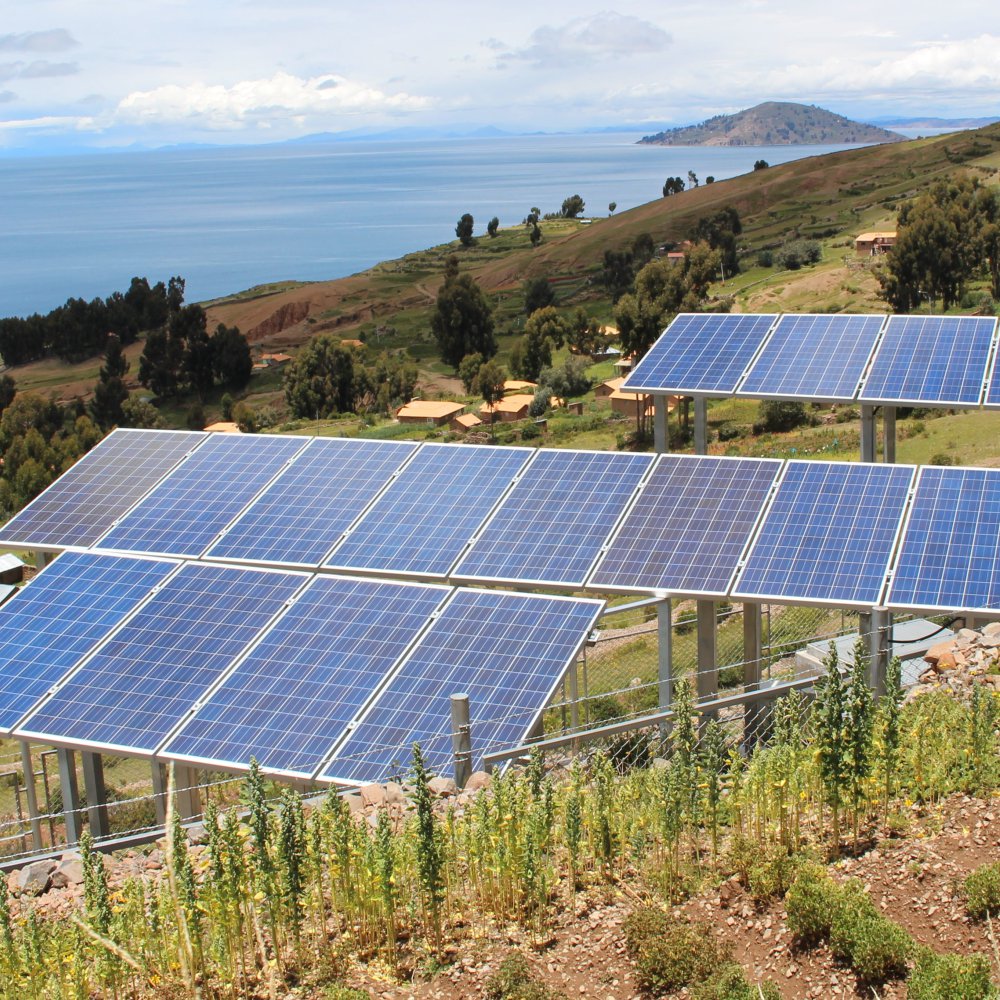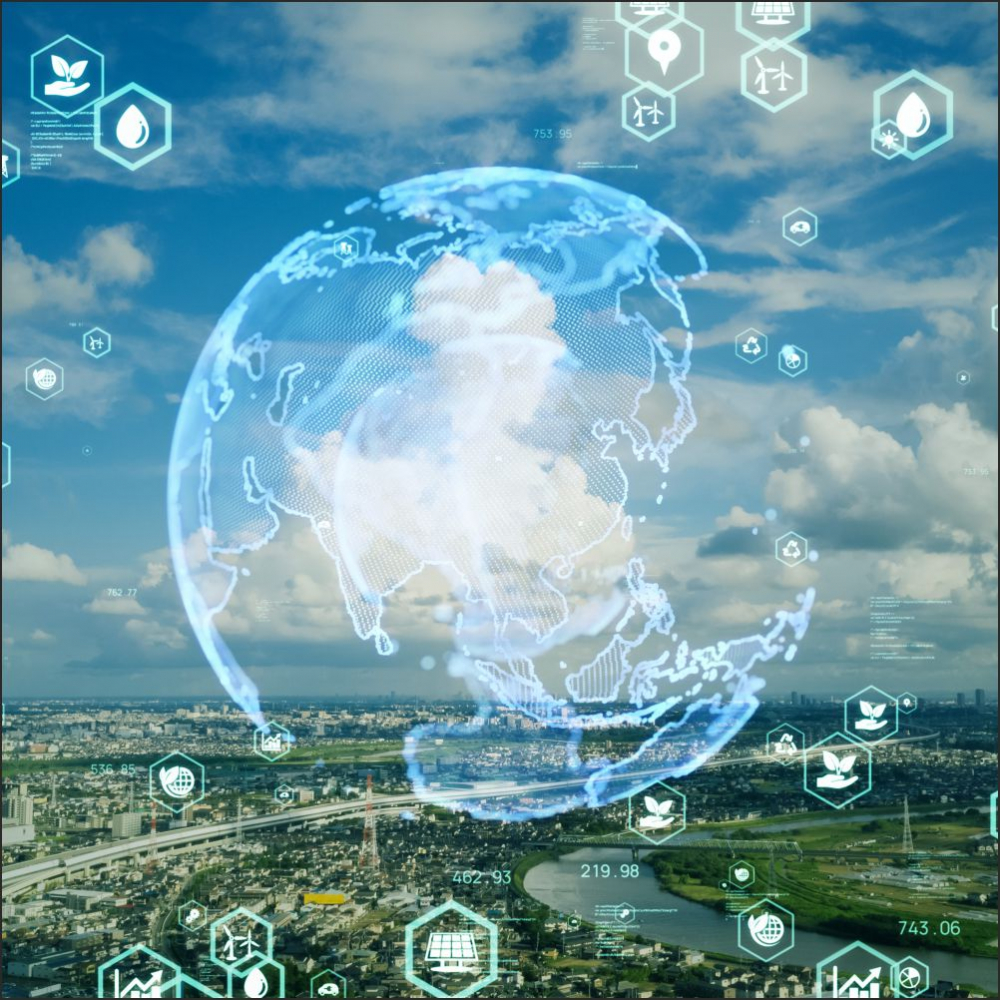MR. SHAILESH HARIBHAKTI, BOARD CHAIRMAN AT SOME OF THE COUNTRY’S MOST PROMINENT ORGANISATIONS, ESG (ENVIRONMENTAL, SOCIAL, GOVERNANCE) & IR (INTEGRATED REPORTING) EVANGELIST
Greta Thunberg talks about climate change, global warming in her book The Climate Book published recently. A teenager from Sweden has succeeded in shifting the global attention around climate emergency. Taking a cue from this, what actions should each of us at corporate as well as personal level take?
The message that I got reading through all the wonderful writings in that book was, “Let's get serious about the climate issue and collaborate to make sure that we can save our species by taking concrete actions in our day-to-day lives”. For example, switch to LED lights, stop using single use plastic, make sure that you are always reminded like I am reminded of the 17 SDGs. It is a question of how we can integrate the whole thought process about the material things that can make a difference to our emissions which are destroying the planet. First lesson is owning up the responsibility. Second let us have our own action plans at corporate level, at individual level and at community level. We have seen so many instances in the last one year that it is now very clear that it is Human Action, which can turn the needle back from the Armageddon that we face if we continue along our past ways. That is the big lesson for all of us from the book.
What is greenwashing? How can consumers differentiate between an organisation which is involved in greenwashing v/s with the one which is genuinely investing in sustainable products?
Recently a PwC report was released, which indicates that in 87% of the reports on sustainability, greenwashing of some kind was discovered. Now that is an extremely high percentage. I am reminded of the recent UN expert panel, set up to examine net-zero claims made by non-state organizations – which calls for regulation to stop baseless environmental claims by companies, banks, and municipalities. Calling for regulation to ensure pledges are genuine, the panel highlighted, “Deceptive or misleading net zero claims by nonstate actors not only erode confidence in net zero pledges overall, but they also undermine sovereign state commitments and understate the work required to achieve global net zero.”
Greenwashing is overstating a company’s climate change contribution. False environmental claims are harming the fight against climate change. Let us say that companies are reporting on some recycling initiative, and they are recycling some of the plastic that they have collected out of their own efforts. Now if they overstate the input-output ratio from the plastic that they are trying to recycle to make the end product, then they are greenwashing. They are not actually performing the role of reducing the impact on the planet and are still claiming it.
Let me give you three instances of out-of-the-box ideas that people are now using to first reduce their footprint and then making sure that the reporting is correct…
- Switch from the idea of data entry to data set capture as it arises. Therefore, all measurements in the future will happen as the physical flow of materials of energy, of everything that you are using in the whole supply chain gets consumed.
- Block chain the process so that you have no chance of over-reporting or under-reporting and that will be a great dampener on greenwashing.
- Disrupt your supply chain completely. This is what at least one Cement Group in the country is thinking about. They are planning to develop the grinding units across the entire coastline that India has so that the distance that the material has to travel to reach to the end consumer gets drastically reduced. That is an example of domestic supply chain reimagination, which can dramatically alter the amount of footprint from cradle to grave.
These are the ways in which you can identify greenwashing, reduce it, and make sure that your measurement systems are such that they will automatically produce accurate data to be reported.
Is there a global organization or an association which can coordinate prompt sharing of this green technology and measuring it as a common initiative?
This is one area where the whole world has got together to actually make sure that the standards of reporting and the frameworks of reporting get commonalised. This effort is today housed under the International Sustainability Standards Board (ISSB) in London. There is a convergence happening in both frameworks for reporting as well as the standards based on which companies will report all the information that they need to provide in the regulatory reports on sustainability. ISSB is that one central organisation that we need to keep watching out for. It will be the fastest issuer of standards on sustainability that the world has ever seen. In two years’, we will have a common framework and tangible standards of measurement.
There are many sustainably standards GRI, ISB, IFC, CDP etc. Is there a feasibility of having just one or two common standards?
I think convergence is necessary, but I do want to talk about heuristics in Scope 3 emissions. In India, we will soon see the emergence of BRSR light, which is being designed for simpler organisations, which are just a part of a supply chain. We must realise that Scope 3 emissions are, in many instances, between 75% and 85% of all emissions that a company is actually responsible. It is critical that in some way we are able to estimate if we cannot measure these things accurately. The small organisations do not have the resources to do that.
So, we would have to unleash the forces of collaboration, innovation, acceptance of technology and change of mindset to make sure that we get to the root of it. We need to completely eliminate the carbon footprint that we are causing and one of the ideas that I am also a great believer of, is green hydrogen, green ammonia and ultimately, we will see some version of fusion, which will enable us to eradicate the problem of greenhouse gases altogether, so I am a great votary of that.
Agricultural Sustainability means - using farming practices which adhere to ecological cycles. India is used to "Traditional Farming". How, as a nation, do we transition to this approach? What role does Pradhan Mantri Krishi Sinchai Yojana (PMKSY) play in this transition?
I will share with everybody a wonderful experiment that is being done at a place called Parli by an organization called Global Parli in Maharashtra. The idea is that we need to wean people away from high water consuming crops, which are – one completely destructive of the environment, using up a very scarce resource like water and are not even good in terms of the output that they generate.
For example, if you were to go on a sugar fast, the first thing that you will have to eliminate is your consumption of Wheat and rice. Therefore, this experiment envisions to disrupt the habits and the allocation of land to appropriate crops, which will be sustainable in the long run from the point of view of input consumption and energy released from the output. In addition to that, multicropping is being considered to bring in exotic vegetables and fruits to make sure that the right mix of food that we need to produce for good energy, good health, and good immunity, comes into being.
As a matter of fact, Global Parli movement has planted 2.5 crore + fruit trees in the last three and half years, benefitting thousands of farmers and greening the environment. This is an experiment, which is highly replicable, can be performed in many parts, not only in India but in the whole world. Also, let's not forget that the world is now beginning to see the massive benefits of hydroponics, aeroponics, greenhouse cultivation and farming, which is on steroids because you take care of it through using machine learning and artificial intelligence. The use of micronutrients and micro water delivery to the plant as it needs it and as it demands it dramatically alters productivity.
Today a whole lot of the water and the nutrients that we are using are simply wasted because the plant cannot absorb it and that is being changed by bringing in this technology of hydroponics and aeroponics. This is a very major contribution that the world can actually receive from Agri-innovation.
With ESG rapidly growing in India who is leading the push is it the institutional investors or is it the government or is the Venture Capitalist?
Fortunately for us in India, the government is extremely serious on this matter. For the government to have chosen ESG as one of the frontiers in its leadership at the G20 is itself a huge indicator of the government's intent. I must give full credit to the Government of India for the amazing thrust that they are taking on this front. Add to that the tremendous leadership that is being displayed by our large industrialists.
While, on one hand, all of them are competing with each other to get to the highest ranks in ESGI, but at the same time, they are making sure that we have a great ESG expanse to look up to for our future generations to embrace and imbibe. Everyone in the value chain aspires to do better in terms of environmental portrait – the industrialists are on board; the NGOs are phenomenally on board. I can sense that the extent of work, which is being done in India, is impressive and we should be proud of the way we have embraced all the 17 SDGs and the way that industry and the government partnership is shaping up across the board to make sure that this becomes reality. There is a long way to go, but the start is fabulous. Having said that, the largest emission action has to be taken by the Western world and even if we were to take all these actions, we are not going to be able to actually limit the increase in temperature to 1.5 degrees Celsius unless the whole world starts becoming serious about it.
Crypto is gaining grounds. The big problem with Crypto is Energy consumption. It takes an estimated 1,449-kilowatt hours (kWh) of energy to mine a single bitcoin. How do we tackle the massive surge in energy consumption besides the environmental pollution?
Let me let me give you a very out of the box thought… what is the Bitcoin? Can you not think about it as a storehouse of energy that might otherwise be wasted? The energy to mine it is being utilised to transfer that mass quantity of energy, which otherwise would have been lost. Bulk of the world's mining is being done in the extreme northern limits and extreme south having extreme weather conditions with abundance of power. It becomes a question of enabling that power to be transferred to places where that power is not actually available.
I am not a votary of Bitcoin at all but let us not confuse Blockchain with Bitcoin. Blockchain is important because it creates decentralization, transparency, and the ability for people to share without feeling concerned or threatened by who is going to see it because it is only the permissioned people who will be able to access that open ledger. Blockchain is an extremely valuable concept, which will not only create the use case of Bitcoin, but many other use cases. It is not cryptocurrencies that I am tracking, I am tracking the Central Bank digital currency, a revolution that is taking the world over and that I think is an exceptionally positive move by the entire world.
The cost of using cash is the highest cost of any other method of exchange and therefore the faster we wean ourselves away from Hard Cash, the better it is. All other forms are intermediates to an absolute adoption of digital currency using identity layers, using the layer of recognition and the layer of transfer so if you can get a whole Central Bank Digital Currency (CBDC) framework, we can see a very different world.
Introduction to Integrating ESG in the next phase of business growth

Categories

Magazine Editions























